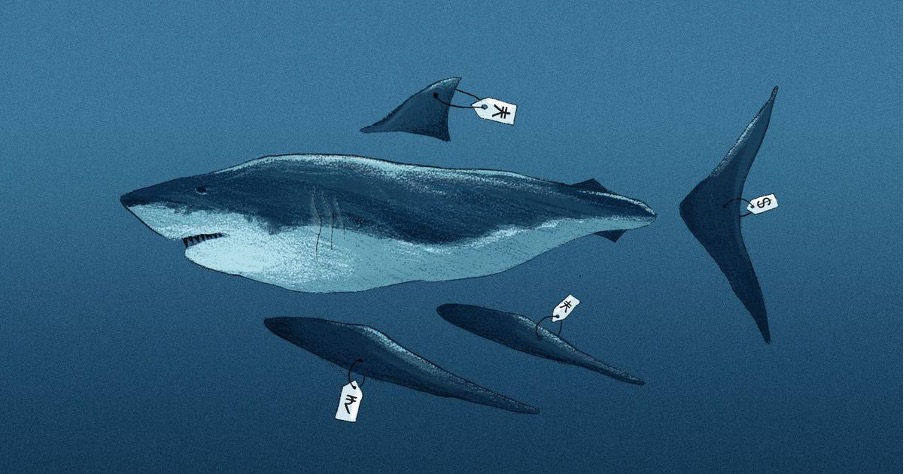A recent analysis by TRAFFIC and WWF-India has uncovered alarming trends in the illegal trade of shark body parts, with Tamil Nadu emerging as a hotspot for such activities. Between January 2010 and December 2022, nearly 65% of the illegal trade in shark body parts was traced back to Tamil Nadu, according to the analysis.
The study revealed that shark fins accounted for approximately 80% of the seized shark-derived products, with significant quantities of shark cartilage and teeth also confiscated. Karnataka, Gujarat, Kerala, and Maharashtra followed Tamil Nadu in the illicit trade hierarchy.
The confiscated products were destined for various international markets, including Singapore, Hong Kong, Sri Lanka, and mainland China, indicating the global scale of the issue. Merwyn Fernandes, associate director of TRAFFIC’s India office, highlighted the demand for shark fins, driven primarily by the culinary delicacy shark-fin soup.
Sharks play a vital role in maintaining marine ecosystems as top predators, but overfishing and low biological productivity pose a significant threat to their survival. Despite India’s rich diversity of shark species, only a fraction is afforded protection under wildlife conservation laws.
Dipankar Ghose, senior director of WWF-India’s Biodiversity Conservation, emphasised the need for improved monitoring and enforcement to combat illegal shark trade effectively. To aid law enforcement, TRAFFIC has developed 3D-printed replica fins and a Shark Fin Identification Guidebook, enhancing authorities’ ability to identify and intercept illicit shark products.
These initiatives aim to bridge gaps in enforcement capacity and support efforts to safeguard shark populations from exploitation. As the illegal trade in shark body parts continues to pose a grave conservation threat, collaborative action and strengthened regulations are essential to protect these vulnerable species and preserve marine biodiversity.

